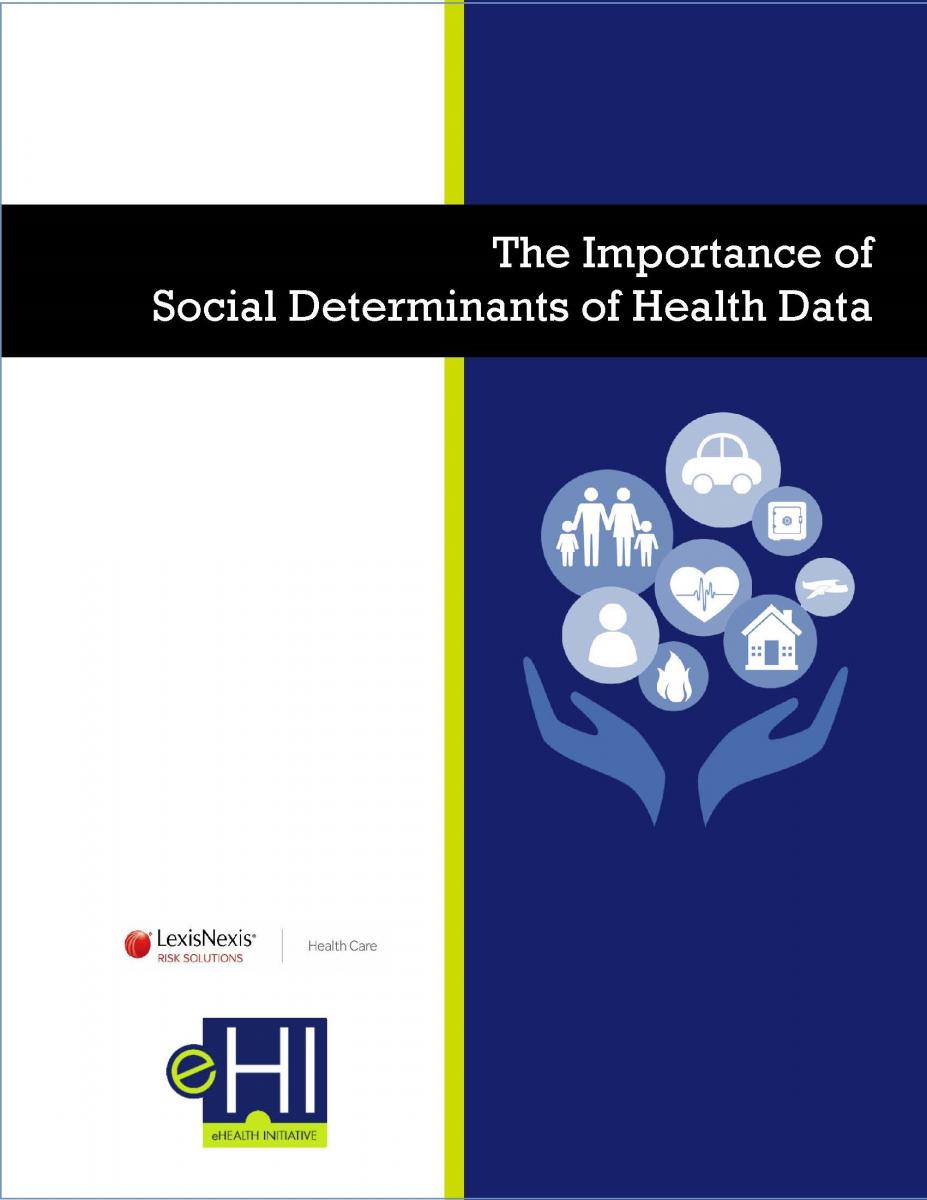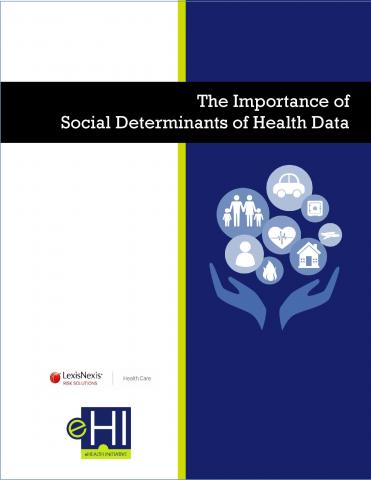Better Diabetes Care: Healthcare Startups Say They’ll Get Paid When Patients Get Better
Better Diabetes Care: Healthcare Startups Say They’ll Get Paid When Patients Get Better
Value-based care is in the air, but the majority of doctors aren’t necessarily ready to be paid on commission. Thirty-one percent of doctors surveyed by Deloitte last year reported being paid through a value-based model, the same as in 2016; more doctors reported salary or traditional fees for services as payment sources. Two companies—Aledade, another Venrock investment by Kocher, and Goldman Sachs-backed Privia Health—aim to help independent doctors implement the technology tools they need to track their patients’ outcomes and negotiate value-based payment contracts with insurers. Privia says it helped save $117 million in healthcare costs in 2017. Americans spent $3.5 trillion on healthcare that year, but it’s a start.
The full Forbes article can be viewed at this link.
What the future of cloud computing holds for health insurance companies
What the future of cloud computing holds for health insurance companies
With the increasing importance of analytics and data management, a cloud-first mentality is ideally suited for health insurers, who are using the technology to streamline operations, reduce costs, and better interact with their customers.
At the same time, the move toward value-based care means claims-based data and analytics can provide a comprehensive view of an insurer’s transactions by aggregating claims across healthcare plans.
The full Healthcare IT News article can be viewed at this link.
Outcomes-based Pricing Not A Panacea For High Priced Drugs
Outcomes-based Pricing Not A Panacea For High Priced Drugs
In the battle over the pricing of new drugs, manufacturers and payers have sought to come up with novel approaches to pricing that can be tolerated by both parties. One such approach has been to provide a type of money-back guarantee for expensive new drugs. In what are called outcomes-based agreements, prices are agreed to by payers with the caveat that if the drug doesn’t perform up to patients’ and physicians’ expectations, the company will refund part, if not all, of the cost of the drug.
The full Forbes article can be viewed at this link.
Chasing Value as AI Transforms Health Care
Chasing Value as AI Transforms Health Care
Business leaders no longer think about artificial intelligence in terms of future impact—they’re seeing the impact today. AI is appearing in all corners of business, transforming the way companies operate. Health care is no exception.
Health care players are using AI to address significant inefficiencies and open up powerful new opportunities. These include everything from the delivery of remote health care services to the early diagnosis of disease and the hunt for new life-saving medicines. Today, the technology is incorporated into heart monitors, smart glucose pumps, and other recently FDA-approved diagnostic devices. Biopharma companies are already using AI to improve the efficiency of R&D; one notable example is through identification of better drug targets.
The ongoing rapid development of AI will trigger a major shift in the value pools across health care. This has serious implications not only for the industry’s four major traditional sectors—biopharma, providers, payers, and medtech—but also for consumers and technology companies. Boston Consulting Group has conducted an in-depth analysis of the potential impact of AI on health care, identifying two prospective scenarios for how value will shift among stakeholders. Under one scenario, much of the value unlocked by AI is retained by players in the four health care sectors and technology companies—while the second scenario sees much of the value flowing directly to consumers.
The full Boston Consulting Group article can be downloaded below.
The Importance of Social Determinants of Health Data
 The Importance of Social Determinants of Health Data (SDOH) paper examines different industry approaches to addressing SDOH. The report demonstrates how SDOH data is critical to reducing cost and improving the quality of care provided by today’s healthcare system. In Winter 2018, eHealth Initiative Foundation and the LexisNexis® Risk Solutions healthcare business hosted the second in a series of roundtable meetings on data governance in healthcare. The roundtable focused on data governance from the perspective of Social Determinants of Health (SDOH), convening senior executives from across the healthcare spectrum. The goal of the meeting was to gather expert opinions on the use of SDOH data to benefit patients and providers. Medical care alone has a very limited effect on overall population health and could be significantly enhanced by pairing with approaches that address SDOH.[i] SDOH data is critical to reducing cost and improving the quality of care provided by hospitals and health systems.
The Importance of Social Determinants of Health Data (SDOH) paper examines different industry approaches to addressing SDOH. The report demonstrates how SDOH data is critical to reducing cost and improving the quality of care provided by today’s healthcare system. In Winter 2018, eHealth Initiative Foundation and the LexisNexis® Risk Solutions healthcare business hosted the second in a series of roundtable meetings on data governance in healthcare. The roundtable focused on data governance from the perspective of Social Determinants of Health (SDOH), convening senior executives from across the healthcare spectrum. The goal of the meeting was to gather expert opinions on the use of SDOH data to benefit patients and providers. Medical care alone has a very limited effect on overall population health and could be significantly enhanced by pairing with approaches that address SDOH.[i] SDOH data is critical to reducing cost and improving the quality of care provided by hospitals and health systems.
According to Healthy People, a U.S. Department of Health and Human Services (HHS) initiative providing science-based, 10-year national objectives for improving the health of all Americans, SDOH are conditions in the environments in which people are born, live, learn, work, play, worship, and age that affect a wide range of health, functioning, and quality-of-life outcomes and risks. Examples of social determinants include availability of resources to meet daily needs, such as safe housing and local food markets; access to educational, economic, and job opportunities; access to health care services; quality of education and job training; availability of community-based resources in support of community living; opportunities for recreational and leisure-time activities; transportation options; public safety; social support; social norms and attitudes, such as discrimination and racism; exposure to crime, violence, and social disorder; socioeconomic conditions, including concentrated poverty and the stressful conditions that accompany it; residential segregation; language and literacy; access to mass media and emerging technologies (e.g., cell phones, the Internet, and social media); and culture.[ii]
Patients’ Engagement in Medical Education
Patients’ Engagement in Medical Education
Patient engagement in medical education for health care professionals is fundamental. Patients are effective and successful in teaching skills to medical and nursing students with positive outcomes on students and patients. Patients diagnosed with chronic illnesses can be considered as "expert patients" who can bring in their experience of illness and teach the emotional, psychological, social, and economic aspects of illness.
Traditionally, patients have been actively involved in teaching and/or assessment which is often achieved by a trained patient-educator with the goal of bringing patient voices into the education about illness and its impact on patient lifestyle and personal and psychological well-being alongside socioeconomic status.
The full article can be downloaded below.
HOW EMPLOYERS ARE FIXING HEALTH CARE
HOW EMPLOYERS ARE FIXING HEALTH CARE
For competitive companies, providing quality coverage is good business. It helps attract and retain employees (good health plans are a sought-after benefit), and workers who receive good, affordable care are more satisfied and productive. But that coverage is expensive, and costs are rising. Employer spending on health care services increased by 44% per enrollee from 2007 to 2016, reaching an annual amount of nearly $700 billion in 2017 — roughly what the Pentagon spends on defense. Walmart alone spends billions of dollars a year on health care for its associates (as the company refers to its employees).
Much is at stake: Various actors in the health care ecosystem, some large insurers and providers among them, benefit from an arrangement that layers on administrative costs and rewards volume, not value. Yet business as usual is unsustainable for those absorbing the costs and experiencing the uneven quality of care. Pioneering employers and providers are in a position to upend the status quo and change expectations about what affordable, quality care can and should be. What follows is an account of our experience with one important effort, among several being tried, to find a better way.
The full Harvard Business Review article can be found at this link.
Webinar: Best Practices in Sharing Behavioral Health Data & Chronic Care Management
Please visit our resource center for slides and a recording of the webinar.
This month we are excited to feature the work of a New York HIE, Healthix, offer congressional perspectives on opioid abuse and privacy, and highlight key findings and best practices discovered through eHI's 2018 workgroup presentations and discussions.
Healthcare In The Age Of Personalization
Healthcare In The Age Of Personalization
As an industry, healthcare has a head start in this era of personalization. Leaders have had to consider how to combine the efficiencies and quality of standardization (we all get the same flu shot) with the understanding that every person is different and health is affected by many factors:
- On the clinical side – advancements in genomics and precision medicine make personalized treatment and prevention possible, while the move toward value-based care shifts incentives toward finding a standardized way to provide personalized care.
- On the non-clinical side – for years healthcare leaders have been considering how people are affected by social determinants of health, things like access to housing, food and transportation. Within their own organizations, leaders grapple with how to create a diverse talent pipeline for both clinical and non-clinical roles.
As our population gets more and more diverse, keeping people healthy will increasingly depend on how well healthcare systems understand and address diverse populations. Yet, as noted above, diverse populations are not homogeneous – we are all individuals.
The full Forbes article can be viewed at this link.
Webinar Presentation: Considerations for Improving Prior Authorization
Slides and presentation recording from February 26, 2019 webinar entitled Considerations for Improving Prior Authorization.
Prior authorization is a key area of frustration for both consumers and healthcare professionals. Over the last year, eHealth Initiative Foundation led an initiative focused on improving prior authorization bringing together stakeholders from dozens of organizations across healthcare.
The multi-stakeholder collaborative resulted in the development of Considerations for Improving Prior Authorization outlining recommended practices for improving, reforming, and streamlining the prior authorization process.
Join us for a webinar coinciding with the release of this document on Tuesday, February 26. Hear the challenges discussed and outcomes developed by executives directly engaged in this effort:
-Jennifer Covich Bordenick, CEO, eHealth Initiative
-John Fleming, MD, Deputy Assistant Secretary of Health IT Reform, Office of the National Coordinator (ONC), U.S. Department of Health and Human Services (HHS)
-Anupam Goel, MD, Chief Health Information Officer, Clinical Services,UnitedHealthcare
-Sagran Moodley, SVP, Clinical Data Services, UnitedHealthcare; Co-Chair,DRLS Medicare Fee for Service Prior Auth Pilot for DME; Chair, HL7 Da Vinci Steering Committee
-Foong-Khwan Siew, PhD, MBA, Director, eValue8, National Alliance of Healthcare Purchaser Coalitions
-Robert Tennant, Director, Health Information Technology Policy, MGMA
-William Thorwarth, MD, CEO, American College of Radiology
-Steven Waldren, MD, VP and Chief Medical Informatics Officer, American Academy of Family Physicians
-Jon Zimmerman, athenahealth

